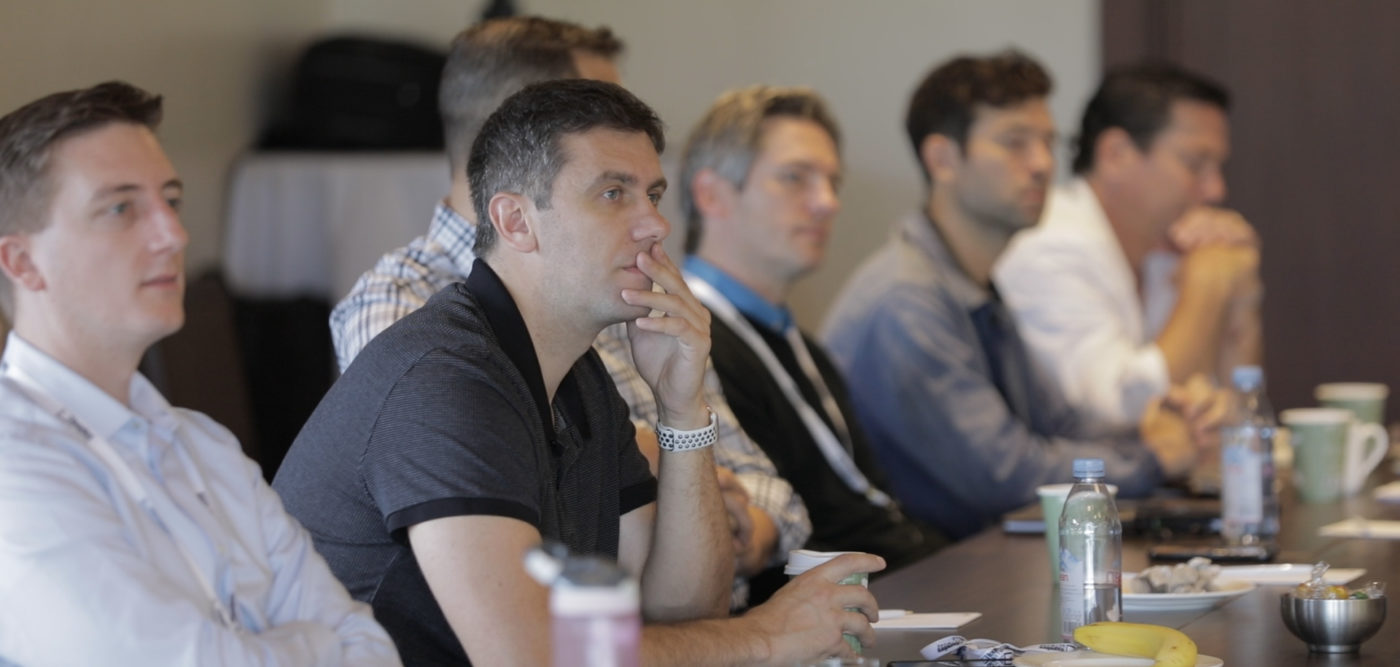
Chris Barley has been a member of Founders Network since May 2017. He’s also been a prominent FN member in our London Chapter. To receive peer mentorship from Chris and over 600 fellow Tech Founders, please request an invite and join our global network.
There are many sources of advice available to entrepreneurs and sometimes the volume seems overwhelming. Dipping into the wide-ranging trough of Medium articles, blogs and podcasts can be quite a time sink, and whilst entertaining, spreading your reading too thinly limits your ability to really progress on a few key topics.
So I try and be specific and focus only on the articles that are relevant to what I want to achieve, and resonate for me.
I believe you can make the same analogy with running a startup. I’ve been involved in two startups, and the experience I’m hopefully carrying into my third is all about specificity— to be as specific as possible in key areas of the business; target market, value proposition and message. This I find makes it easier to create momentum and hit targets.
Be as specific as possible in key areas of the business; target market, value proposition and message. @christobarley
Narrow in On Your Market
It’s all too common to aim for a big market in the belief that, as it’s a large pool of customers, your ideal customer will be out there somewhere and you will just miraculously find them – I’m certainly guilty of this! But of course aiming for a big market doesn’t make it easier to hit. This is common sense if you think about it – large markets have wide ranging and complex requirements which make it almost impossible to find that perfect customer and score a bullseye.
Build a Customer Persona
Defining your ideal customer in the early stages is hard, especially when you have little feedback or market data. Building a customer persona really helped me here – it forces you to define your buyer as a human, and to deeply understand what makes them tick. And once you have an identikit, you have something to aim for.
You may well get it wrong, but being specific should enable you to set goals and measure results quickly, and change tack without wasting too much time and money.
That’s not to say that you can’t start off with a grand vision and end up dominating a multi $bn market. But it’s very hard to do it the other way round. A start up has only very finite resources – which is mostly your (the founder’s) time. You have to be hyper focus on a defined niche otherwise you just spread yourself too thin.
A start up has only very finite resources – which is mostly the founder’s time. @christobarley
Define Your Proposition
Being specific also results in the discipline of really digging into your target market’s problems, so the solution is tailored just for them. This will almost certainly result in a small addressable market but as we all know, a few wildly happy customers are worth more than many mildly indifferent ones.
If you can’t be specific about defining your customers’ requirements, then the likelihood is that you’re making a guess at what they are. And that could result in your shot ending way off target.
With a market and proposition defined, I find its then a lot simpler to put together a persuasive and precise message that hits a nerve with the customer. A defined customer persona also really helps here to determine the optimum route to market.
Of course, this all requires hard, diligent work. But it can also save a lot of effort in the long run. Being specific means that you can test upfront your own assumptions about why your service might be successful. If you are going to build a taxi hailing app, it’s difficult to definitively say whether it will work or not. But if you say you are going to build an app for weekend limo booking in downtown San Francisco for time poor, wealthy tech entrepreneurs, then you can test each precise assumption, sometimes without even building an MVP.
With a market and proposition defined, I find its a lot simpler to put together a persuasive and precise message that hits a nerve with the customer. @christobarley
Create a Mental Framework
And the rub comes from the fact that, in today’s internet and social media world, being razor focused is now an optimum strategy because it’s now much easier to reach your ideal customers in niche markets with a small budget. After you’ve achieved your beachhead, the internet means you can scale into a multi $bn market quicker and more cost effectively than ever before.
Specificity is an attitude and a mindset. I’ve found it can provide a helpful mental framework to making decisions about what to do next in your early stage business. Without it, a startup can be a long, hard, winding road, making success more difficult to achieve.






